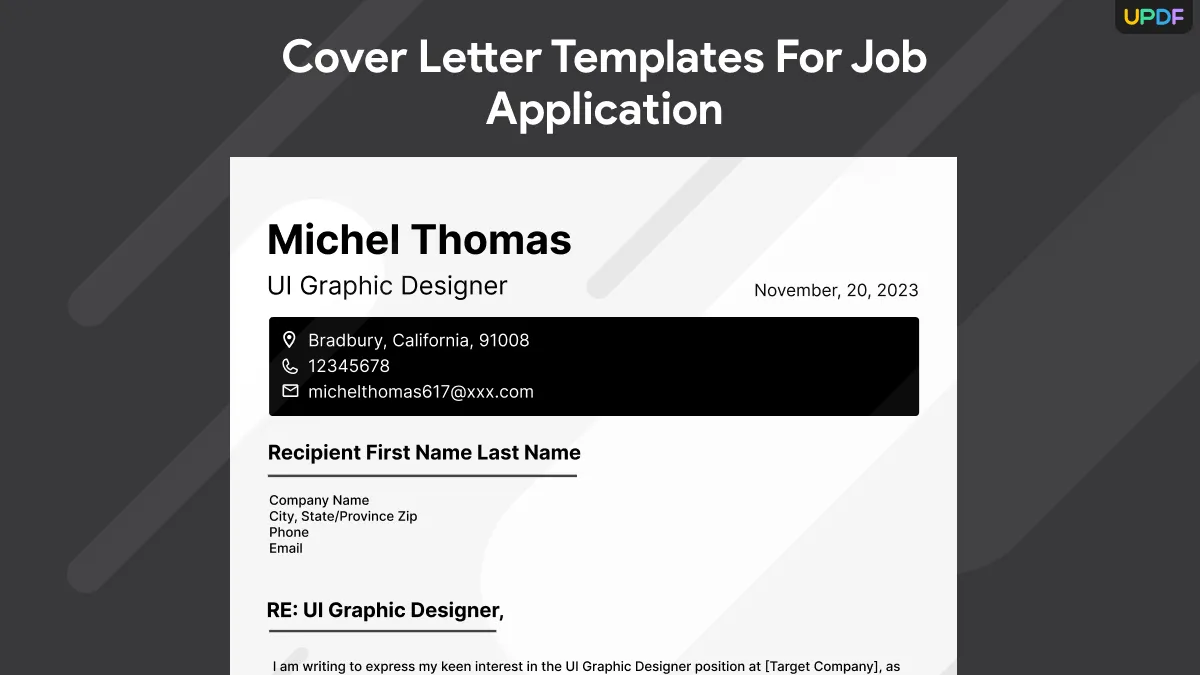Why a Cover Letter Matters
In the competitive world of job applications, a well-crafted cover letter can be the deciding factor between landing an interview and being passed over. Many job seekers underestimate the importance of a cover letter, but it serves as a vital introduction, allowing you to showcase your personality, highlight relevant skills, and demonstrate your genuine interest in the position and the company. While your resume provides a factual overview of your experience and qualifications, the cover letter offers an opportunity to tell your story, connecting your skills and experiences to the specific requirements of the job. It’s your chance to make a strong first impression and set yourself apart from other applicants. A great cover letter shows that you’ve taken the time to research the role and the company, and that you’re not just sending out generic applications. This personalized approach significantly increases your chances of getting noticed by the hiring manager.
Highlighting Your Skills
A compelling cover letter highlights the skills and experiences that directly align with the job requirements. Before writing, carefully review the job description to identify the key skills and qualifications the employer is seeking. Then, use the cover letter to demonstrate how your past experiences have equipped you with these skills. Provide specific examples that showcase your ability to perform the job duties effectively. Don’t just list your skills, but illustrate them with anecdotes and achievements. For example, instead of saying ‘I have strong communication skills,’ describe a situation where you successfully mediated a conflict or delivered a persuasive presentation. Quantify your accomplishments whenever possible; this provides tangible evidence of your abilities and impact, making your application more persuasive. Highlighting relevant skills and providing supporting evidence shows the hiring manager that you understand the job and are capable of excelling in it.
Tailoring to the Job
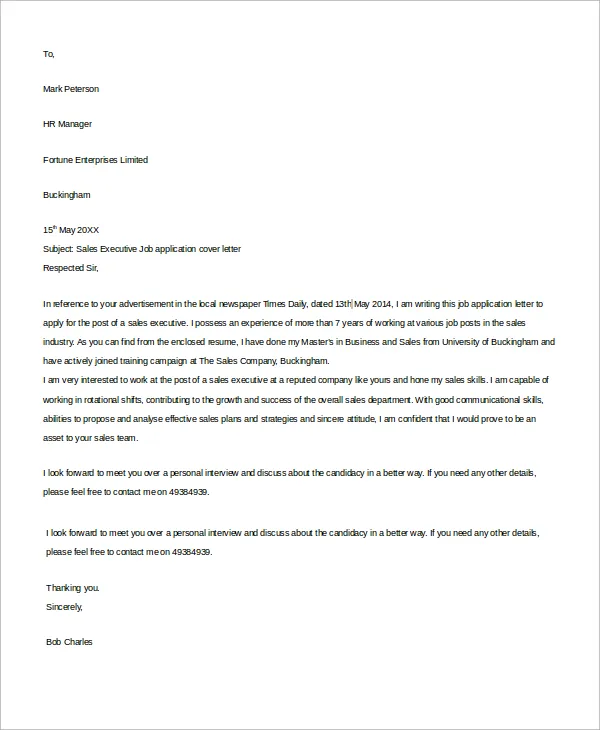
One of the most critical tips for writing an effective cover letter is to tailor it to each specific job application. Sending a generic cover letter to multiple employers is a common mistake that can significantly reduce your chances of success. Instead, customize your cover letter for each position you apply for. This involves thoroughly researching the company and the role to understand their specific needs and expectations. Analyze the job description to identify the key requirements and tailor your letter to address them directly. Mention the company by name, and demonstrate your knowledge of their mission, values, and recent achievements. This shows that you’re genuinely interested in the opportunity and have taken the time to understand what the employer is looking for. Highlighting your skills in the context of the job’s requirements and showcasing your enthusiasm for the company makes your application much more relevant and compelling.
Cover Letter’s Structure
Header and Contact Information
A well-structured cover letter begins with a professional header that includes your contact information. This allows the hiring manager to easily reach you. Start with your full name, address, phone number, and email address. Ensure your email address is professional-sounding. Avoid using nicknames or unprofessional email addresses, as this creates a poor first impression. It’s also good practice to include the date and the hiring manager’s name and title, if known. Addressing the cover letter to a specific person shows that you’ve done your research and taken the extra step to personalize your application. Using a professional header sets the tone for the rest of the letter and provides all the essential information the hiring manager needs to contact you if they decide to move forward with your application.
Opening Paragraph
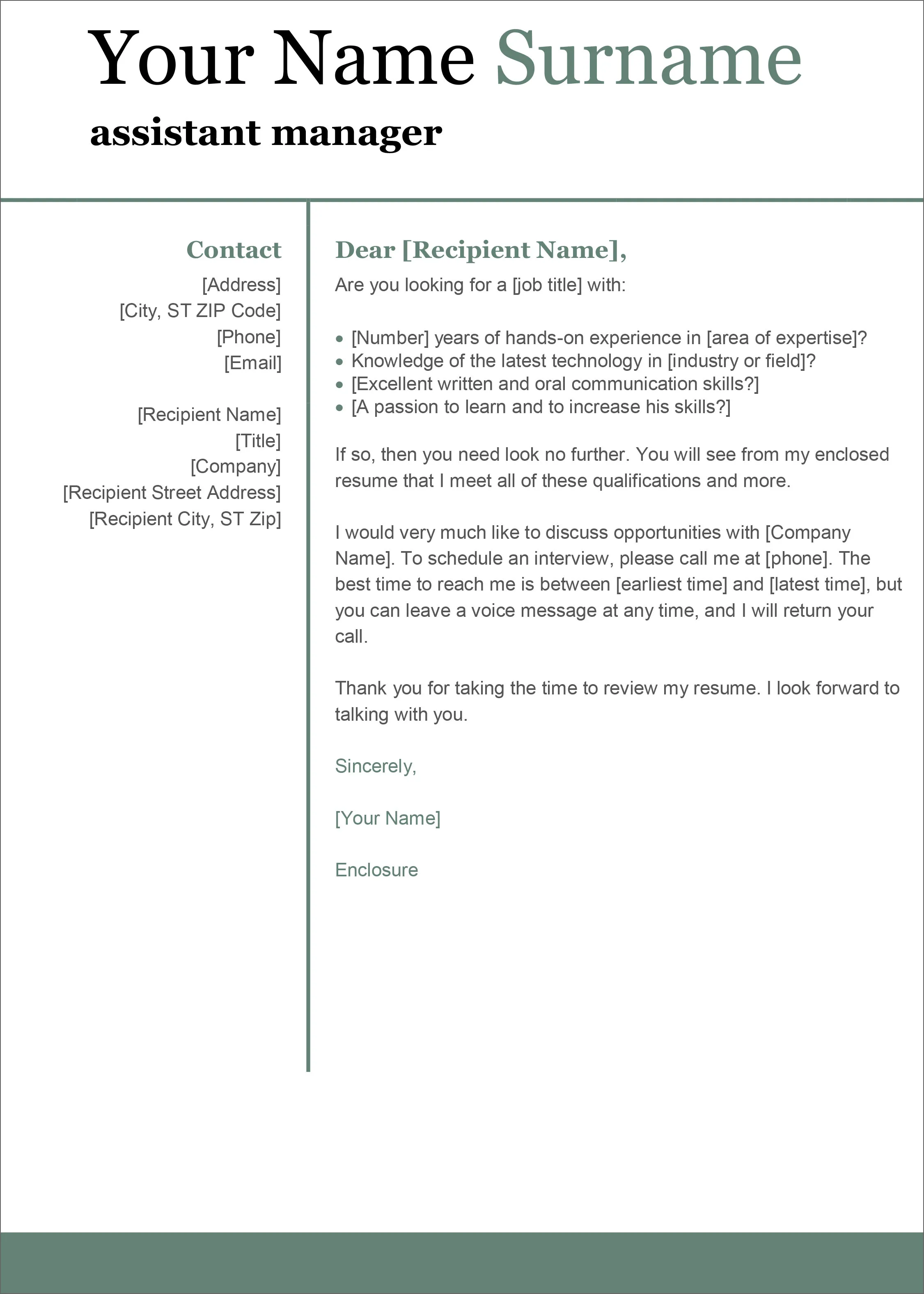
The opening paragraph is your opportunity to grab the hiring manager’s attention. Start with a strong opening statement that immediately captures their interest. State the position you’re applying for and where you found the job posting. Briefly highlight your most relevant qualifications or skills. Instead of a generic introduction, try to make it unique by mentioning something that sparked your interest in the role or the company. Show enthusiasm and demonstrate that you understand the company’s mission or values. A compelling opening sets the tone for the rest of your letter and encourages the reader to continue. It’s your first opportunity to demonstrate your personality and your keen interest in the opportunity. A well-crafted opening paragraph can make all the difference in getting your cover letter read.
Body Paragraphs
The body paragraphs of your cover letter are where you provide details about your qualifications and experiences. This section should expand on the key skills and experiences you highlighted in the opening paragraph. Use specific examples and achievements to demonstrate your capabilities and accomplishments. Focus on how your skills align with the job requirements and what value you can bring to the company. Structure your paragraphs logically, using clear and concise language. Each paragraph should focus on a specific skill or accomplishment and provide supporting evidence. Use action verbs to describe your experiences, making your letter more dynamic and engaging. Keep the tone professional and enthusiastic, conveying your passion for the job and the company. Proper organization and compelling details make your cover letter more persuasive.
Closing Paragraph
The closing paragraph of your cover letter should reiterate your interest in the position and the company. Thank the hiring manager for their time and consideration. Reiterate your enthusiasm for the opportunity and express your desire for an interview. This is the appropriate place to include a call to action, such as ‘I look forward to the opportunity to discuss my qualifications further.’ Make sure your closing is both professional and appreciative, demonstrating your gratitude for the opportunity to apply. Double-check your closing for any errors. A strong and well-written closing paragraph leaves a positive final impression, prompting the hiring manager to contact you.
Showcase Achievements
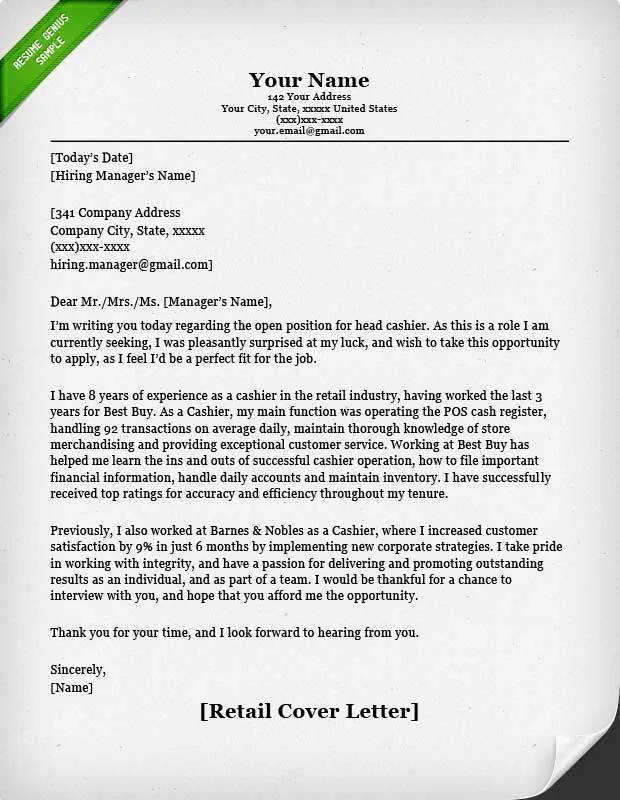
Quantify Your Accomplishments
When describing your accomplishments in your cover letter, it’s crucial to quantify your achievements whenever possible. Providing specific numbers and data gives hiring managers a clear understanding of your impact and value. Instead of saying ‘Improved sales,’ state ‘Increased sales by 15% within six months.’ Instead of saying ‘Managed a team,’ specify ‘Managed a team of 10 employees, consistently exceeding performance targets.’ Quantifying your achievements makes your claims more credible and highlights the tangible results you’ve delivered in past roles. Use metrics to showcase your skills, impact, and abilities, making your cover letter more persuasive and memorable. Quantifiable achievements provide concrete evidence of your abilities and make your cover letter stand out.
Use Action Verbs
Using strong action verbs is another essential element of a successful cover letter. Action verbs make your descriptions more dynamic and engaging. They also help to showcase your skills and accomplishments in a more active and compelling way. Begin your sentences with action verbs to describe your past experiences and responsibilities. For instance, instead of ‘Responsible for managing projects,’ use ‘Managed multiple projects simultaneously, delivering them on time and within budget.’ Instead of ‘Worked on customer service,’ write ‘Provided exceptional customer service, resolving issues and increasing customer satisfaction by 20%.’ Action verbs breathe life into your writing, making your cover letter more engaging and memorable. Action verbs illustrate your capabilities and make your application more impactful.
Formatting and Style Tips
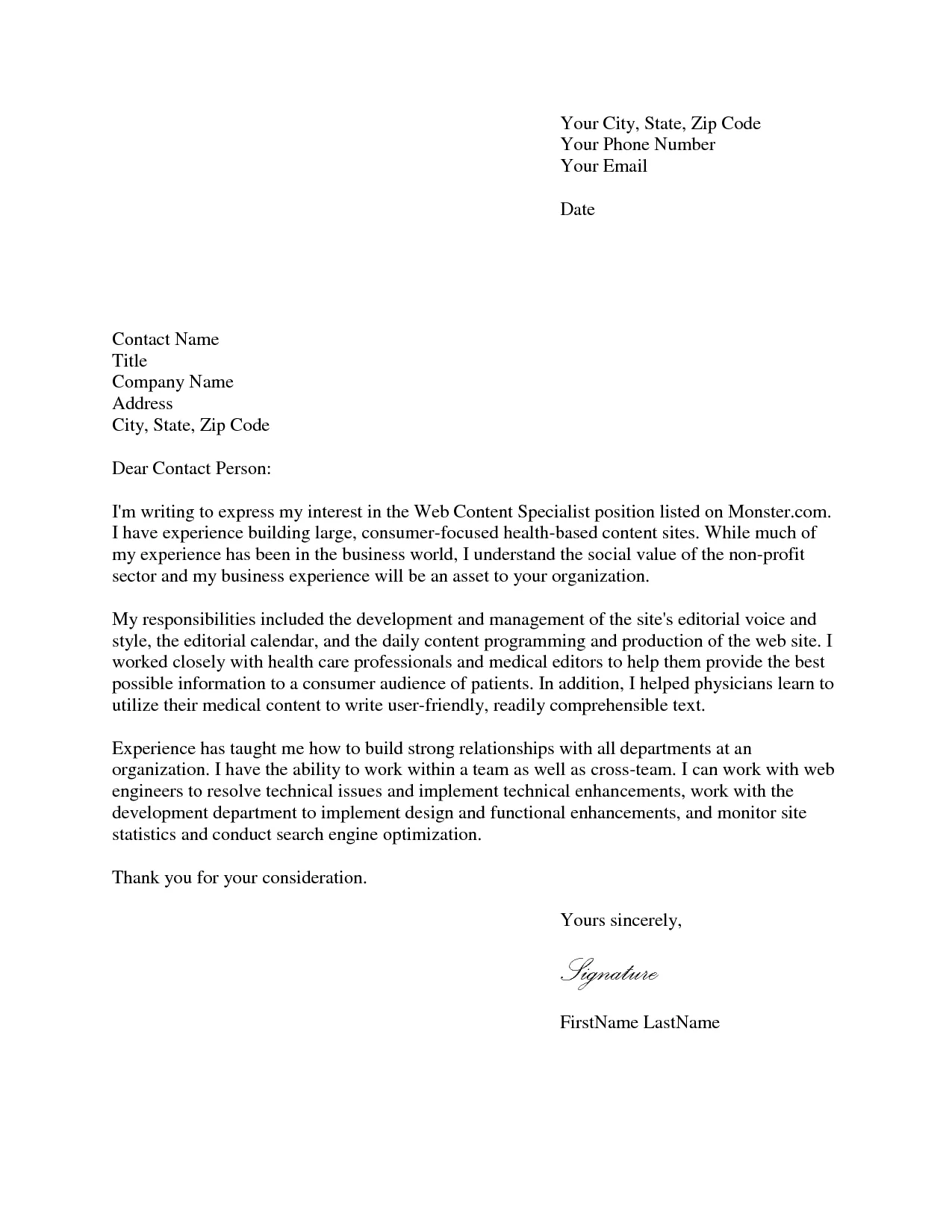
Keep it Concise
Keep your cover letter concise and to the point. Hiring managers often have limited time to review applications, so it’s important to get your message across quickly and efficiently. Aim for a cover letter that is no longer than one page. Use clear, concise language and avoid unnecessary jargon. Focus on the most relevant information and avoid rambling. Each sentence should serve a purpose, highlighting your skills and experiences in a way that is clear and compelling. Ensure that every word contributes to making your case. A well-written, concise cover letter demonstrates respect for the hiring manager’s time and increases the likelihood that your application will be thoroughly reviewed. Being concise shows you respect the reader and value their time.
Proofread Carefully
Proofreading is a crucial step in writing an effective cover letter. Typos and grammatical errors can significantly undermine your credibility and professionalism. Before submitting your cover letter, carefully proofread it for any errors. Check for spelling mistakes, grammatical errors, punctuation errors, and formatting inconsistencies. Read the cover letter aloud to catch any awkward phrasing or unclear sentences. Consider asking a friend or family member to proofread it as well, as a fresh pair of eyes can often spot errors that you may have missed. Ensure your cover letter is polished and error-free. A well-proofread cover letter reflects your attention to detail and commitment to quality.
Formatting for Readability
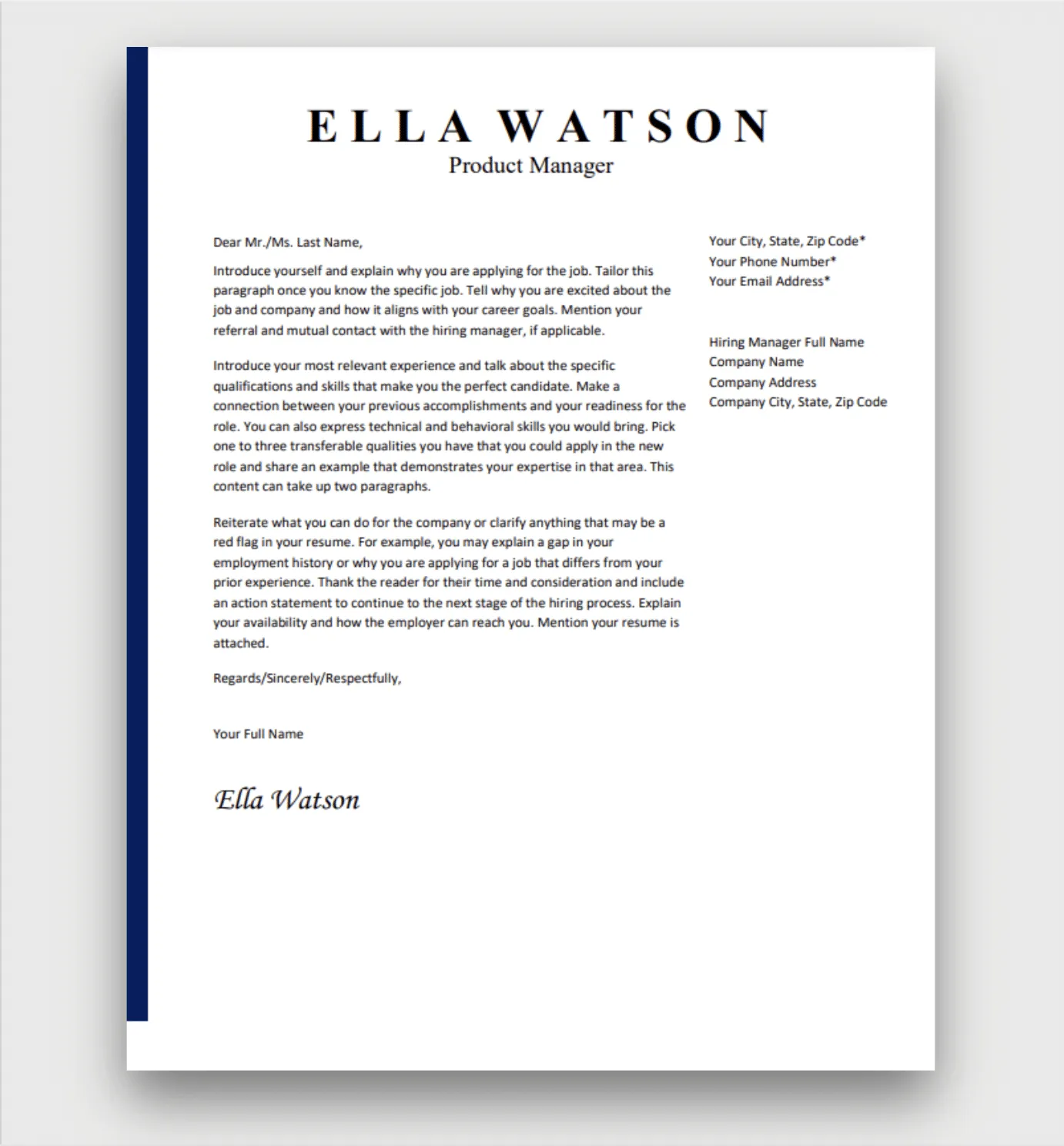
Formatting your cover letter for readability is also critical. A well-formatted cover letter is easy to read and makes a positive impression. Use a professional font, such as Times New Roman or Arial, and a font size between 11 and 12 points. Use consistent spacing and margins. Break up large blocks of text with paragraphs and bullet points. Ensure your cover letter is visually appealing and easy to scan. A well-formatted cover letter is more inviting to the reader and increases the chances that your message will be absorbed. Proper formatting enhances the overall presentation and makes your application stand out.
Call to Action
Express Enthusiasm
Expressing enthusiasm for the job and the company is another key element of an effective cover letter. Demonstrate your genuine interest in the opportunity and show that you’re excited about the possibility of joining their team. Mention specific reasons why you’re interested in the role or the company, such as their mission, values, or recent achievements. Highlight how your skills and experience align with their needs. By expressing your enthusiasm, you make a positive impression and show that you’re not just looking for any job but are specifically interested in this one. Enthusiasm makes you more memorable and persuades the hiring manager to consider your application seriously. A candidate’s enthusiasm can set them apart.
Provide Contact Information
Make sure to provide your contact information in your cover letter. This makes it easy for the hiring manager to reach you if they’re interested in scheduling an interview. Include your email address and phone number. It is common to include your LinkedIn profile URL or a link to your online portfolio. Ensure your contact information is accurate and up-to-date. Providing your contact information is essential to make sure your application is actionable. Make it easy for them to take the next step in the hiring process.
Writing a strong cover letter is a crucial part of the job application process. By following the tips outlined in this guide – highlighting your skills, tailoring your letter to the job, structuring your letter effectively, showcasing your achievements, formatting it for readability, expressing enthusiasm, and providing contact information – you can create a cover letter that grabs the hiring manager’s attention, showcases your qualifications, and increases your chances of landing an interview. Remember to be concise, proofread carefully, and always personalize your cover letter for each job application. Good luck with your job search!
